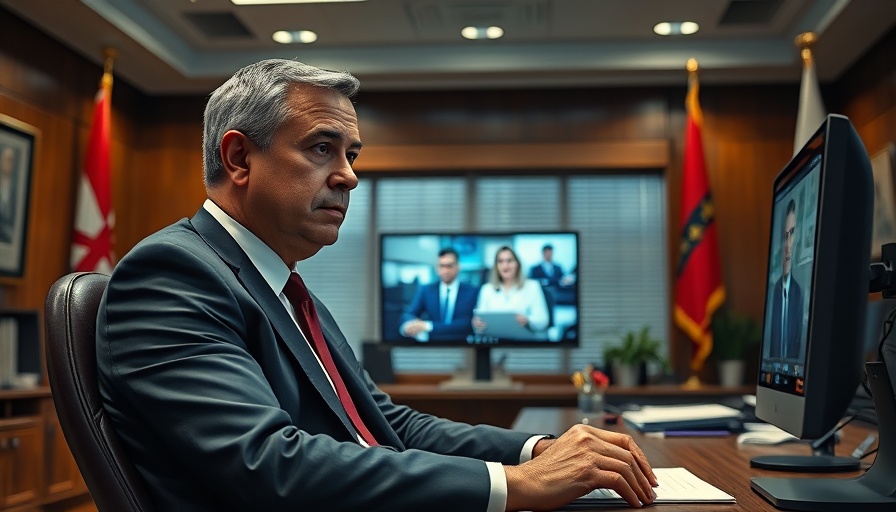
Putin's Threats Heighten Tensions in Russia-Ukraine Conflict
As the conflict between Russia and Ukraine escalates, recent exchanges between President Vladimir Putin and former President Donald Trump hint at a turbulent period ahead. Following Ukraine's daring drone attacks targeting Russian bomber bases, Putin has publicly declared that he will retaliate, further complicating efforts for peace in the region.
Context of Rising Military Engagements
The backdrop to this escalation is significant. Over recent months, Russia has unleashed a relentless barrage of over 1,000 drones weekly, demonstrating its military capabilities while increasing airstrike intensity against Ukraine. This led to a volley of counteractions, with the Ukrainian forces launching a sophisticated drone operation against key Russian military installations. Such aggressive posturing unveils the high stakes involved as both nations appear entrenched in their military strategies, raising fears of further violence.
Impacts on Peace Negotiations
During the lengthy conversation with Trump — reported to have lasted over an hour — Putin reiterated his intention to respond to these Ukrainian attacks. Despite Trump's attempts to broker negotiations between the two nations, the situation appears increasingly precarious. Notably, both leaders accused each other of undermining peace efforts through their offensive strategies. Trump’s optimism for a ceasefire has dimmed considerably, especially with Putin's refusal to agree to earlier proposals aimed at ending hostilities.
A Closer Look at Propaganda and Perception
The narratives presented by both leaders reflect their contrasting approaches to public opinion and international diplomacy. Trump referred to the call as a "good conversation" but acknowledged that it did not pave the way for immediate peace. On the other hand, Kremlin aides have waged a war of words, characterizing Ukraine's strikes strictly as acts of terrorism without acknowledgment of Russia’s initial aggression in 2022. This partisan framing of the conflict helps solidify domestic support for both leaders, even as civilian casualties mount.
Broader Implications for Global Security
The escalation exemplifies not only regional tensions but also raises alarms for international observers. If retaliatory actions are indeed taken, it could lead to broader implications, drawing in NATO and potentially destabilizing European security further. Observers fear a return to a Cold War mentality, where military might takes precedence over diplomatic dialogue.
Future Predictions: A Road less Traveled
As the situation unfolds, speculation regarding the continuity of peace talks and foreign intervention sparks diverse opinions among analysts. Some experts posit that ongoing military operations could lead to an eventual stalemate, whereas others warn of a potential spiral into greater conflict. These insights suggest a critical inflection point, demanding a concerted diplomatic initiative guided by powerful nations to mediate and avert further escalation.
Call to Action: Stay Engaged with Developments
With the situation rapidly evolving, it is essential to stay informed about both national and global implications of the conflict. Engaging with reliable news sources and international commentary can enhance understanding and insights relating to these vital geopolitical issues. Knowledge is power, and staying updated can better equip individuals and communities to comprehend the complexities at play in the Russia-Ukraine confrontation.
 Add Row
Add Row  Add
Add 




 Add Row
Add Row  Add
Add 

Write A Comment